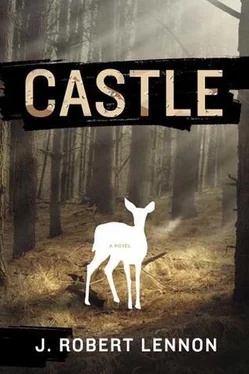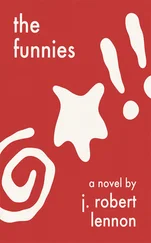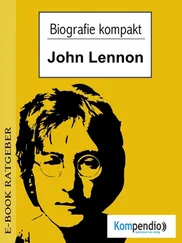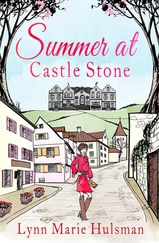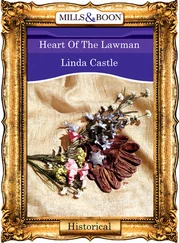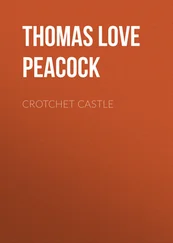He gave his head a rueful nod, still smiling, as though, in disappointing him, I had nevertheless confirmed some idea he had long harbored about me. He said, “I haven’t been a professor for years, Eric — they took that away from me soon after they took you.” His voice, undiminished by time, carried flawlessly through the motionless air. It was as though he were standing beside me. He took another step closer.
“Don’t move,” I said, reaching for my quiver. “I don’t intend to listen to your explanations. The time for those is over.”
But Doctor Stiles merely shook his head. “You were an excellent pupil, Eric. I had high hopes for you.”
“You should not have made me your enemy, then,” I replied, and I drew forth my bow and nocked an arrow — the arrow that had murdered the white deer.
The Doctor’s grin widened. “Ah! I see you have a bit of my handiwork, there,” he said.
“So it was you.”
“Of course it was,” he replied. And then, after a moment’s pause, he relaxed his smile, his eyes narrowed, and he went on. “Eric, I can see your mind is made up about me, and about what you’re doing here. But I want to tell you that destroying me is not the answer. In fact, you don’t even know what the question is, do you?”
I drew back the arrow. My fingers ached from the climb, and my right arm trembled.
“You think that by taking my life, your own will be restored.” He lowered his hands, and slipped them into the pockets of his pants. Indeed, he appeared relaxed, as if I were no danger at all. “The fact is, Eric, that you cannot restore your own life by killing me.
“Furthermore, your life doesn’t need to be restored,” he went on, edging away now, toward the northern lip of the rock. My aim tracked his slow movement. “It merely needs to be seized. And my life — my life was never here to be taken.”
I was puzzled by his words. But if he believed that my confusion would throw me off my guard, he was sadly mistaken.
He lunged. At the same moment, I released the arrow. Belatedly I realized that he had not been attempting to evade my shot. Instead, he had thrown himself off the rock. His leap took him high into the air, and it was at the zenith of that leap that the arrow met him. It was a perfect shot, striking him in the back, low between the shoulder blades and slightly to the left. And as the arrow passed through him, he vanished from view.
I listened for his cry. But there was none. For a moment, the silence seemed to deepen, the stillness to take on weight. And then, from behind me, I heard a rumble, and the light dimmed. I turned. A cloud was moving across the face of the moon. Before I could wonder why it had brought no wind, the wind came, curling around the summit and raising, briefly, a vortex of dust and dead moss before gusting in earnest, pressing my clothes against my body and blowing leaves and pine needles against my neck.
A storm was coming, and I had to climb down before the rain began. But first I ran to the northern lip, lay on my stomach, and looked down over the edge. It was no use — with the moonlight now occluded by clouds, and the rock’s blurry shadow extending to the woods, the clearing was lost in murk. I could see nothing.
I scrambled to the southern edge and began my descent, with the wind alternately pressing me to the cliffside and straining to pluck me away. How had I failed to notice the approaching storm? I was barely a third of the way down when I felt the first drops on my cheek, and then, seconds later, the sky opened up and lashed the cliffside in a fusillade of raindrops. Immediately the rock face became slick and unnavigable. One of my feet slipped, then a hand, and I nearly fell.
Instead, I managed to find a lower hold, and then one lower than that. Several times I lost my grip and slid the length of my body; once I fell entirely and only avoided serious injury or death by grabbing hold of the ledge I had rested on during my first ascent, days before. At last I arrived, bruised, scraped, and soaking wet, at the lone pine, where I grabbed my pack and made a run for the “toe,” limping and bleeding as I went. The wind howled and the rain fell in sheets, and I almost slipped again as I lowered myself to the firm ground of the clearing.
I might have gone for the cover of the trees. But I had to reassure myself, first, that the Doctor was really dead. By keeping close to the western face of the rock, I was able to avoid the worst of the storm, and soon I had arrived at the northern end, beneath the cliff he had leaped from.
He was there. He lay curled in the lee of the rock, his head thrown back, one arm flung over his shoulder. His arrow was lodged deep in his back, and I had no doubt that it had pierced his heart.
This is not something I say lightly, but the first things I felt upon finding the Doctor’s body were horror and revulsion. I have had the misfortune of seeing many corpses in my lifetime, and have been witness to all manner of misery and brutality, and never have I lost my sense of sadness and injustice in the face of such things. But something about Avery Stiles’s lifeless form, its crumpled brokenness, its stark corporeality, filled me with disgust and fear. I trembled, and struggled to calm my rising gorge.
I had never seen my parents’ bodies. Evidently, their faces had been disfigured by the violence that ended their lives, and their caskets remained closed. Gazing at what had once been my mentor, I wondered if my doubts about my parents’ deaths might have been resolved, had I forced myself to look at their ruined faces. Jill, after all, had identified their corpses. She had had no doubts. Quite suddenly, I experienced a wave of guilt, for having allowed this rift to open between us. Perhaps I had been the unreasonable one all along.
I knelt beside the dead Doctor and choked back a sob. I had murdered my teacher! Of course I understood that it was his desire I should come to get him, that he had martyred himself, ultimately, for some obscure purpose that would never be known. The rain fell, and I crouched there in the dim, feeling very much as though I had lost, as though I had missed something important that the Doctor hoped to impart with his suicide.
My contemplation was shattered by a tremendous roll of thunder, which, instead of trailing off into a low rumble, grew in intensity and pitch, until the ground shook and the air was split by a deafening crack. I fell to the ground beside the body, my hands clapped over my ears. The sound seemed to go on for hours, though surely it lasted less than a minute, and when it finally stopped, the light had changed, the moon emerged from behind a cloud, and the air smelled strange — fresher, cleaner, as though a lid had been removed from the world.
I stood up and took a deep breath. My wounds throbbed, but my head felt clear. I looked down at Stiles’s corpse and felt none of the revulsion I had felt mere moments before. Indeed, it was as though the lightning had broken something in me, some blockage, or wall, beyond which some hard wind was blowing. To be sure, the feeling made me uneasy. But, at the same time, I felt that I could now move forward, that I must move forward. There was nothing for me to do now but to retreat back into the woods and find my way home.
First, however, I took hold of the Doctor’s body and dragged it to the castle wall. With great effort, I was able to pull it through the hidden entrance and deposit it upon the flagstones. All around me stood the castle, illuminated by moonlight that shone now from underneath the bank of black clouds. It appeared old and ruined, as it had when I saw it, for the first time in many years, only days before. The rain slowed, and thinned to a piercing mist. The chasm that the storm had seemed to open in me yawned wide, and my unease deepened. I exited the courtyard the way I came in. At last I crossed the clearing and plunged back into the woods to find my way home.
Читать дальше
